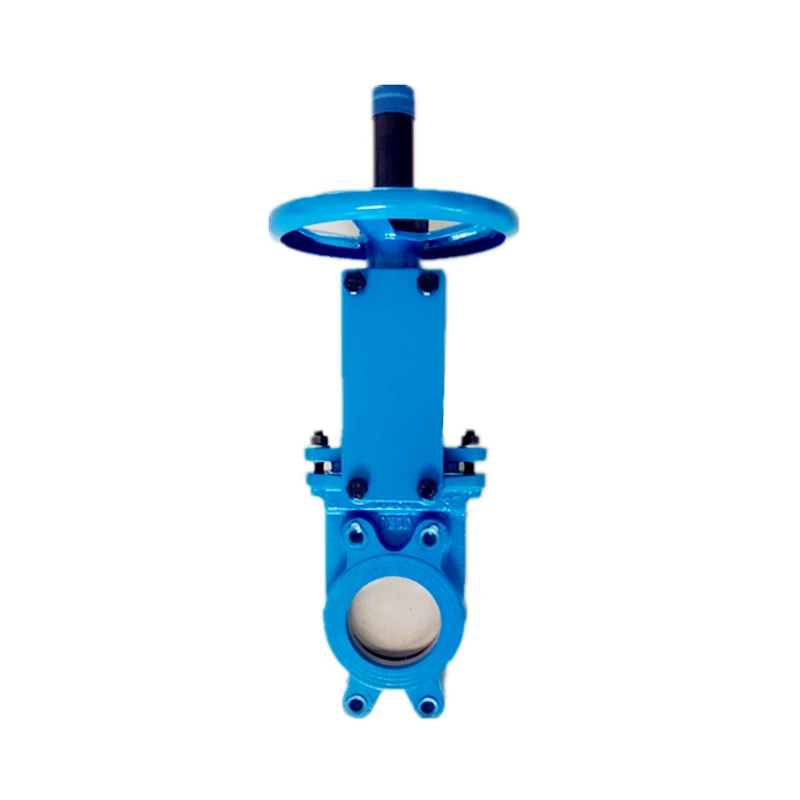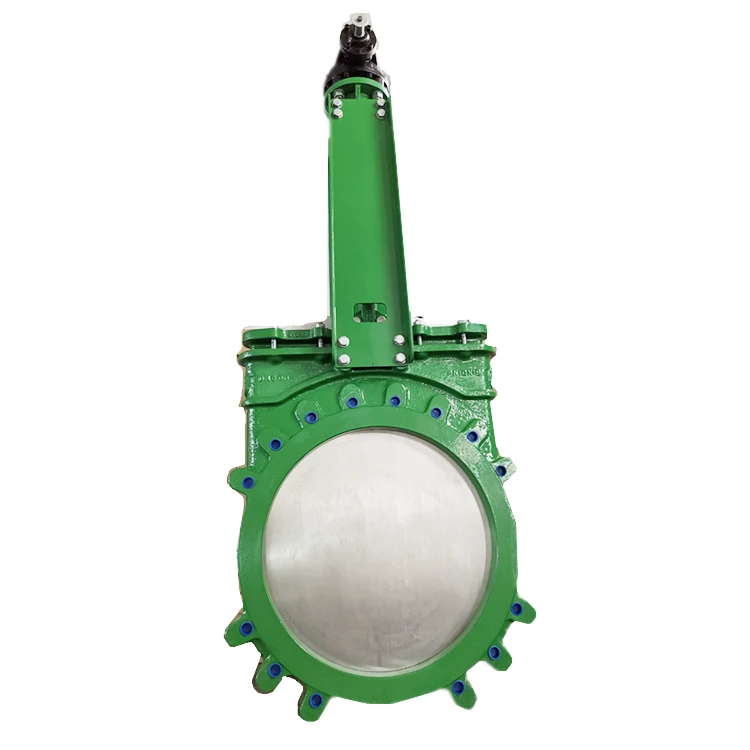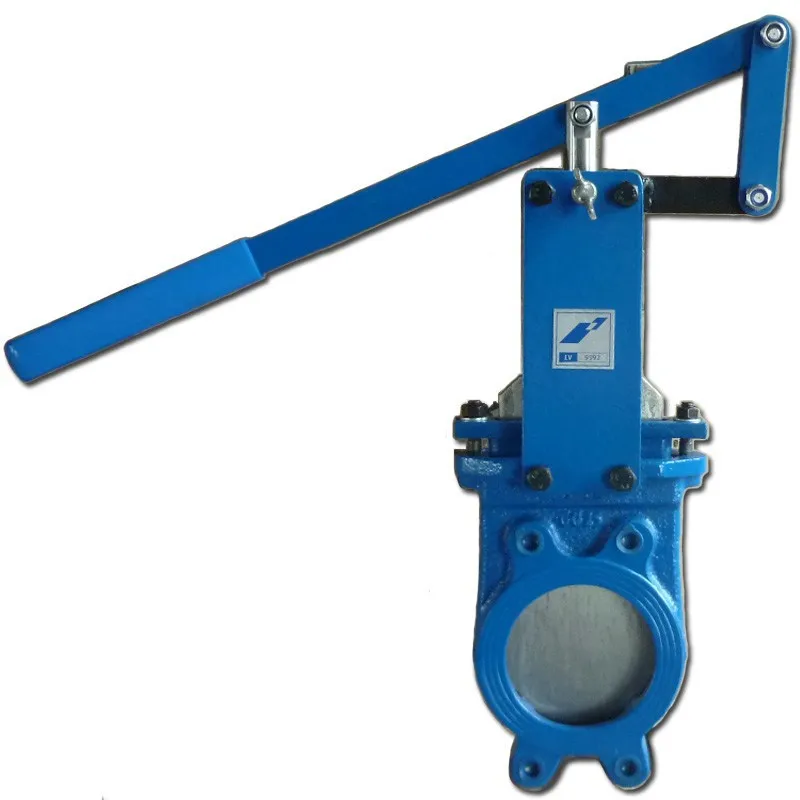Exploring Wafer Style Knife Gate Valves and Their Variants
Key Takeaways
Wafer style knife gate valves represent a crucial component in modern industrial fluid control systems. These valves are designed to provide efficient flow regulation, often featuring a unique construction that minimizes leaks while offering ease of installation. The wafer type knife gate valve variant introduces a thin-profile design that allows for a compact installation between flanges, making it suitable for tight spaces. This design offers significant advantages, including reduced weight and lower material costs without compromising performance.
A distinct category within this realm is the weir knife gate valve, known for its enhanced ability to handle varying flow conditions thanks to its intricate weir design. This type is particularly effective in applications that require controlled liquid flow with minimal turbulence, making it advantageous for wastewater treatment and other applications demanding precision.
Wey knife gate valves are another prominent option within this space, characterized by innovative engineering that incorporates robust materials and precise manufacturing techniques. These valves often come equipped with unique sealing technologies to enhance reliability and longevity under demanding operational conditions.
The significance of these valves extends beyond mere functionality; they play an essential role in optimizing overall system efficiency across various industries, including municipal services, chemical processing, and food production. Understanding the individual strengths of wafer style, wafer type, weir, and Wey knife gate valves can lead to informed decisions about the most suitable solutions for specific fluid control challenges. These insights will be invaluable to engineers aiming to enhance system performance while maintaining safety and compliance with industry standards.
Exploring the Unique Features of Wafer Style Knife Gate Valves
Wafer style knife gate valves are essential components in various industrial applications, known for their efficiency in controlling the flow of fluids. These valves feature a thin blade design that slices through the medium, ensuring a tight seal when closed. Their compact structure allows for easy installation between flanges, which is particularly beneficial in space-constrained environments. The simplicity of their design reduces maintenance needs while enhancing operational reliability.
The material construction of wafer style knife gate valves often includes corrosion-resistant options such as stainless steel or high-performance plastics, making them suitable for both abrasive and chemically aggressive applications. Their ability to handle varying pressures and temperatures contributes to their versatility across industries such as wastewater treatment, mining, and power generation.
In terms of performance, these valves excel at isolating flow with minimal pressure loss when open. This characteristic is particularly advantageous in systems requiring efficient fluid transport. The streamlined operation leads to less wear and tear on machinery, optimizing overall equipment performance. Additionally, the intuitive design with fewer moving parts results in lower chances of failure, which translates to cost savings in long-term maintenance.
The integration of wafer type knife gate valves within existing piping systems is seamless due to standardized dimensions that fit between existing connections without extensive retrofitting. This ease of integration enhances their popularity among engineers looking for reliable solutions to fluid control challenges.
Feature | Description |
|---|---|
Design | Thin blade for effective sealing |
Installation | Compact and easy to fit between flanges |
Material Options | Corrosion-resistant stainless steel or plastics |
Pressure Handling | Suitable for varying pressure and temperature |
Maintenance | Low due to fewer moving parts |
Performance | Minimal pressure loss when open |
Overall, the unique features of wafer style knife gate valves make them indispensable tools in managing fluid dynamics across diverse operational settings. The adoption of these valves enhances efficiency while contributing significantly to system safety and reliability.
Understanding Wafer Type Knife Gate Valves and Their Advantages
Wafer type knife gate valves serve a vital role in various industrial applications, ensuring efficient fluid control during processes involving slurries, liquids, and other challenging materials. The design of these valves incorporates a thin blade that slices through the fluid flow, effectively cutting off and regulating the passage. This mechanism results in minimal turbulence and reduced pressure drops compared to other valve types. One fundamental advantage of wafer style knife gate valves lies in their space-saving compactness. Their dimensions allow for easy installation between flanges without the need for additional fittings or adapters, facilitating straightforward integration within a piping system.
Moreover, this particular type of valve boasts excellent sealing capabilities due to its flat seating surfaces, which conform tightly to eliminate leakage. The blade can be constructed from various materials, including stainless steel or carbon steel, which further enhances its durability against wear and corrosion over time. Applications are numerous; industries ranging from wastewater treatment to pulp and paper manufacturing heavily rely on these valves for their efficiency in handling solid-laden fluids. Additionally, the straightforward design ensures ease of maintenance, leading to lower operational costs over the valve’s lifecycle.
The operational efficiency captured by wafer type knife gate valves, coupled with their reliability and versatile applications across industries, establishes them as a preferred choice among engineers aiming for optimal performance in fluid control solutions.
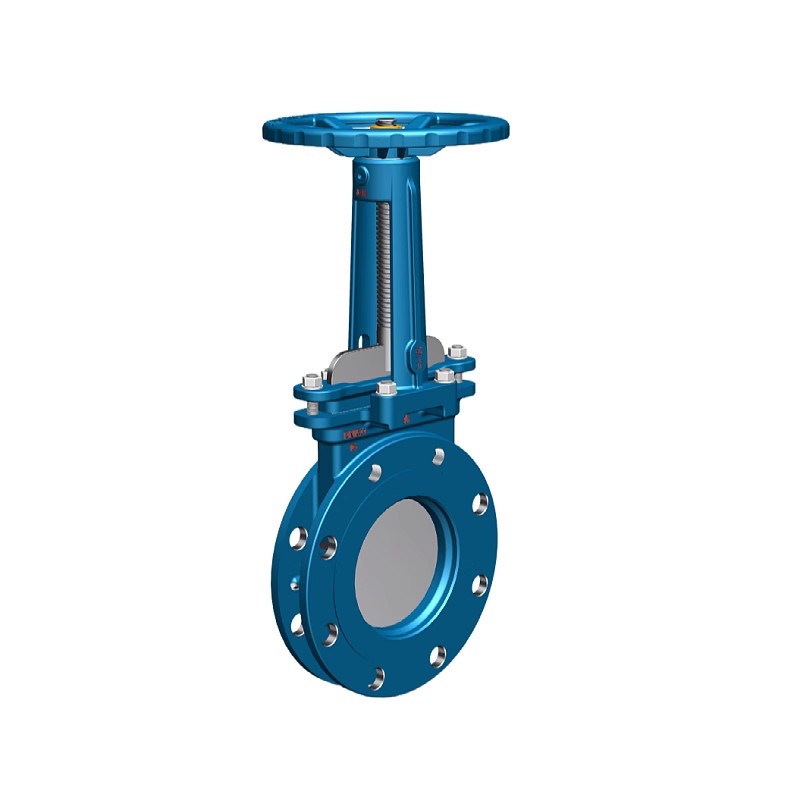
Examining Weir Knife Gate Valves and Their Industrial Applications
Weir knife gate valves are designed with a specific geometry that improves control over fluid flow, making them suitable for both on-off and throttling applications. Their unique structure features an elevated weir, which allows for better sealing and reduces the risk of leakage. This characteristic is particularly essential in industries that handle slurries, wastewater, and other abrasive materials. The durability of weir knife gate valves is another notable attribute; constructed from robust materials, they withstand harsh conditions typical in industrial settings.
In various applications, such as food processing and chemical manufacturing, the weir design helps manage varying flow rates effectively. The minimal resistance in these valves does not impede fluid movement excessively, thus optimizing energy consumption during operation. Furthermore, the ease of maintenance they offer contributes to overall operational efficiency.
"Selecting the right valve design can significantly enhance system reliability and efficiency."
Additionally, weir knife gate valves provide flexibility in installation due to their compact construction. Industries can benefit from reduced space requirements while still maintaining reliable control over their processes. This versatility positions weir knife gate valves as a critical component across multiple sectors, showcasing their importance in modern fluid management systems.

A Closer Look at Wey Knife Gate Valves: Designs and Benefits
Wey knife gate valves are recognized for their precision engineering and adaptability in various industrial applications. Designed with a wafer style, these valves provide a compact solution that minimizes leakage and optimizes flow control in fluid handling systems. The design of Wey knife gate valves incorporates a unique blade that slices through media, allowing for effective isolation of flow in both directions. This feature is particularly beneficial in applications where sediment or particulate matter is present, as it reduces the risk of clogging.
Furthermore, Wey knife gate valves are equipped with robust materials that enhance durability, making them suitable for harsh environments often encountered in industries such as wastewater treatment, pulp and paper, and chemical processing. The valve's ease of operation is attributed to its straightforward manual or automated actuation options, facilitating seamless integration into existing systems. The versatility of these valves extends to their size range and connection styles, accommodating various piping layouts without compromising performance. Overall, the thoughtful design elements and operational advantages position Wey knife gate valves as a reliable choice for industries demanding efficient fluid control solutions.
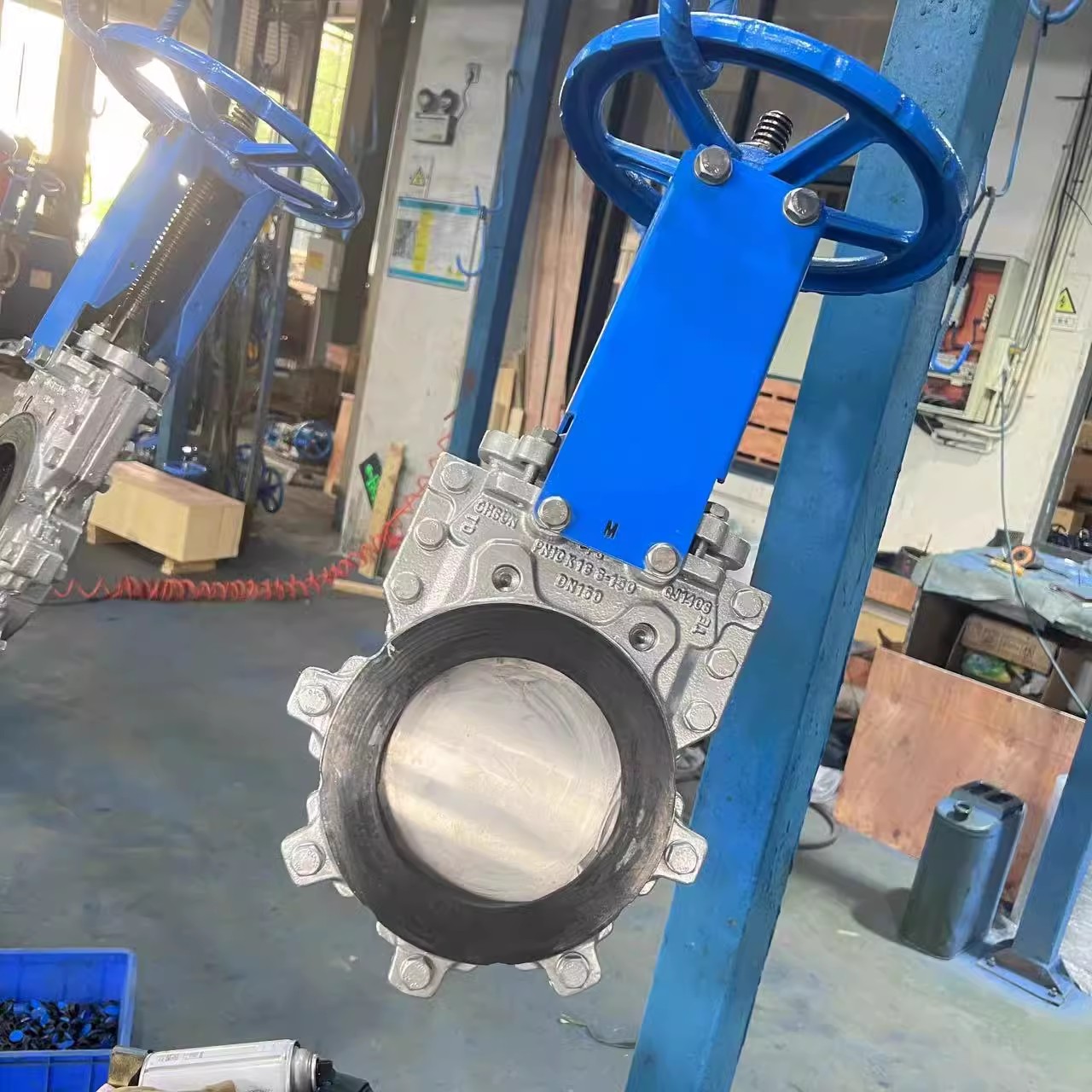
Conclusion
The various types of knife gate valves including wafer style, wafer type, and weir knife gate valves offer unique advantages for fluid control across industries. Each variant serves distinct applications while optimizing flow management. The wafer style knife gate valve, recognized for its compact design, is engineered to provide a reliable sealing solution with low-pressure systems. The wafer type knife gate valve enhances operational efficiency, particularly in systems requiring frequent cycling due to its lightweight and easy-install features. In contrast, weir knife gate valves stand out where slurries are involved, allowing for superior fluid handling thanks to their unique geometry. The additional offerings from Wey, with innovative designs and robust construction, cater to a wide range of industrial requirements, ensuring longevity and minimal maintenance. These valves decisively support operational reliability in sectors from wastewater treatment to food processing, promoting effective management of various types of fluids under different conditions.
FAQs
What is a wafer style knife gate valve?
A wafer style knife gate valve is a type of valve designed for on-off service in various industries. It features a thin blade that can slice through fluids, making it ideal for handling slurries and other challenging materials.
How does a wafer type knife gate valve differ from other types?
The wafer type knife gate valve is distinguished by its compact design, allowing it to be sandwiched between flanges. This design results in a lightweight and cost-effective solution, suitable for tight spaces.
What are the advantages of using weir knife gate valves?
Weir knife gate valves offer enhanced sealing capabilities compared to traditional designs. The weir shape helps control the flow and minimizes turbulence, making them suitable for applications requiring high performance in fluid management.
What benefits do Wey knife gate valves provide?
The Wey knife gate valves are known for their robust construction and reliability. They are engineered to handle high-pressure applications while ensuring durability and consistent performance over time.
In which industries are these valves commonly used?
These valves find applications in numerous industries, including wastewater treatment, mining, pulp and paper production, and chemical processing. Their versatility makes them essential for effective fluid control across various environments.
How do I choose the right knife gate valve for my application?
Selecting the appropriate knife gate valve involves considering factors such as fluid type, pressure requirements, temperature ranges, and installation space. Understanding these parameters ensures optimal performance tailored to specific operational needs.

